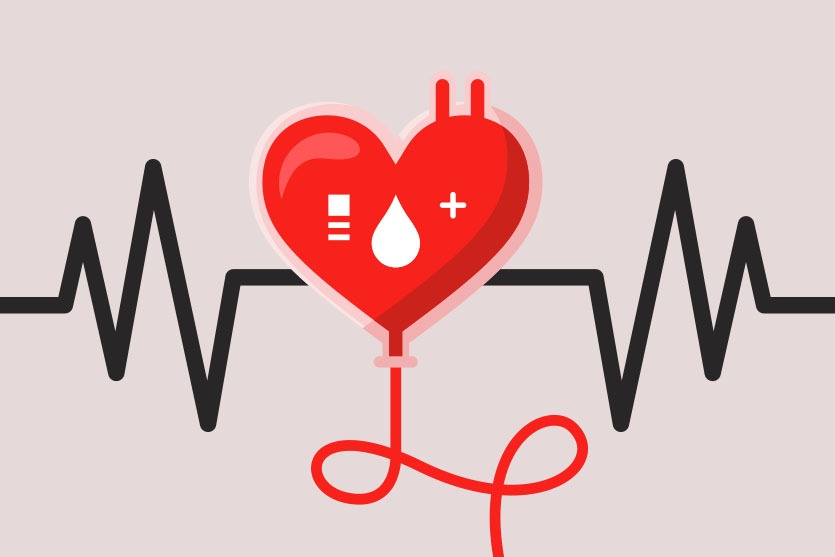
Basic Stages of Blood Preparation and the Importance of Its Continuous Availability
Introduction
Blood: it is the language of life that flows within our bodies. Considered one of the most vital elements, blood ensures the continuity and strength of our existence. It is the vital fluid carrying oxygen and nutrients to every cell in the body while eliminating waste and toxins. Behind this smooth flow of life lies a complex and balanced process deep within the body – the preparation of blood.
Blood cells – red blood cells, white blood cells, and platelets – undergo a graduated series of processes occurring in the bone marrow, the body’s primary blood factory. This process is not merely about producing blood cells; it constitutes a precise system of biological reactions reliant on continuous balance and regulation.
In this article, we embark on a detailed journey into the depths of the human body to explore the fundamental stages of blood preparation. We will understand the implications and significance of each stage, shedding light on the factors influencing this vital process. Furthermore, we will unveil the importance of continuous blood availability and its essential impact on public health and emergency situations that demand immediate blood support.
This article is not merely an exploration of a vital process in the human body; it is an exploration of the essential secrets of life and how its sustainability is upheld through maintaining a robust blood health and continuous availability.
The process of blood preparation is marked by complexity and creativity simultaneously. Let us delve into this intricate and astonishing world that holds the secret to the continuity and strength of our lives.
Basic Stages of Blood Preparation:
The process of preparing blood is one of the most important vital functions in the human body; It helps transfer oxygen and food to all parts of the body and remove waste and toxins from it. The process of preparing blood in the body is carried out through several serial and integrated stages that include the process of forming blood cells and supporting tissues. Let’s take a look at these basic stages:
- Bone Marrow: The process of blood preparation initiates in the bone marrow, present in major bones like the thighs, spine, and ribs. Bone marrow contains multipotent stem cells, the mother cells capable of evolving into various types of blood cells.
- Hematopoiesis: Stem cells exit the bone marrow and begin the process of differentiation and maturation to form mature blood cells. This process involves three main types of blood cells:
- Red Blood Cells: transport oxygen from the lungs to various body tissues.
- White Blood Cells: form the immune system and combat infections and microbes.
- Platelets: play a crucial role in blood clotting to stop bleeding.
- Regulatory Factors: Several regulatory factors influence the process of blood preparation, including:
- Hormones: such as erythropoietin that stimulates red blood cell production.
- Active proteins: regulate the growth and maturation of blood cells.
- Environmental factors: oxygen deficiency or exposure to radiation can affect the blood formation process.
Significance of Continuous Blood Availability:
Continuous blood availability is of paramount importance to maintain body health. Blood deficiency can lead to various diseases like anemia and weaken the immune system, making the body more susceptible to infections and reducing its ability to resist and recover from them.
Moreover, ensuring blood availability is crucial in emergencies and accidents that require blood transfusions to save lives. Therefore, continuous blood supply and encouraging people to donate blood are vital to ensure sufficient blood for those in need.
- Disease prevention: A sufficient amount of blood and the balance of blood cells contribute to maintaining health and preventing diseases such as anemia.
- Recovery from injuries: The blood plays a crucial role in the process of recovering from injuries and surgeries, as it helps in regenerating tissues and rebuilding the body.
- It is necessary in emergency situations: blood transfusion is necessary in emergency situations such as accidents, major surgeries and diseases that require blood transfusion to save the lives of people.
These stages and factors are essential to preparing blood and its continuous importance. Maintaining blood health and encouraging blood donation is one of the vital factors to ensure its constant availability, maintaining the health of the body and preventing diseases.
1.Diseases Associated with Blood Deficiency:
- Anemia: results from a shortage of red blood cells or hemoglobin in the blood, causing fatigue and weakness.
- Thrombocytopenia: decreases blood platelets, increasing the risk of bleeding and reducing the body’s ability to recover from wounds.
- Bone Marrow Diseases: such as leukemia and lymphoma, affecting the production of healthy blood cells.
2.Accidents and surgeries:
- In emergency accidents and major surgeries, blood transfusion is vital to save the lives of the injured and avoid large blood loss.
3. Genetic diseases:
- Some genetic diseases affect the blood preparation system, such as sickle cell anemia and thalassemia anemia.
4. Blood donation:
- Blood donation plays a vital role in providing blood for emergency and surgeries, and can save the lives of many people.
5. The effect of environmental factors and life style:
- Exposure to radiation, lack of oxygen, and unbalanced nutrition can affect the process of blood preparation.
- Maintaining a healthy lifestyle and eating balanced food enhances blood health and activity.
6. Medical research and progress:
- Scientific studies and medical research contribute to a better understanding of the process of preparing blood and developing treatments for the associated disorders.
Conclusion
In a world full of biological complexities, the process of blood preparation stands out as one of the most fascinating operations that astound the human mind. It is an intricate and precise process that occurs deep within our bodies, indispensable for ensuring the continuity of our lives and our overall health.
By exploring the stages of blood preparation, we realize its profound impact on our health. It is not just about forming blood cells; it is a dynamic process reflecting our biological balance and resilience against diseases and recovery. Blood deficiency opens doors to numerous health problems affecting our daily lives.
The importance of continuous blood availability extends beyond mere health concerns. In emergencies and disasters, blood becomes the pillar of life, rescuing the injured and restoring hope and healing to them.
The act of blood donation reflects humanity and solidarity, where people unite to assist each other in times of need. A single drop of blood can make a difference between life and death for many individuals.
We must understand that the process of blood preparation is not merely a series of biological operations; it is a collective responsibility that we must respect and support. Through awareness and continuous donation, we can ensure the continuous availability and preparation of blood, supporting a healthy and happy life for everyone.
In the end, blood preparation stands as one of the greatest natural wonders in the human body. It is an integrative process that never ceases, reflecting strength, resilience, and solidarity. Let us all be part of this magnificent human story and ensure the continuous availability and preparation of blood to support a healthy life for everyone.









Kingston1351
April 28, 2025Good https://rb.gy/4gq2o4
Grace405
April 28, 2025Very good https://rb.gy/4gq2o4
Kathleen4254
April 28, 2025Awesome https://rb.gy/4gq2o4
Moses1610
May 1, 2025Good https://is.gd/N1ikS2